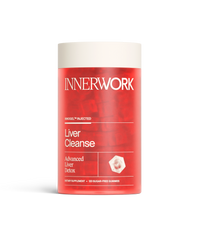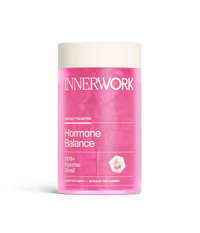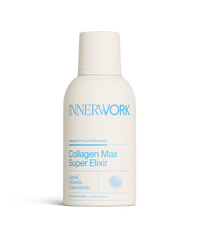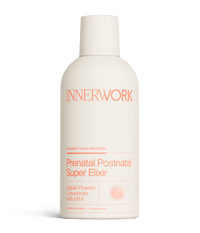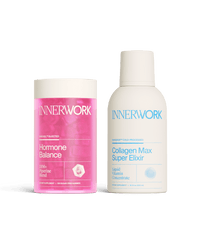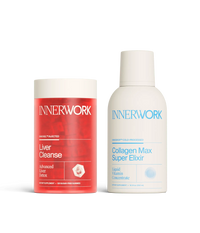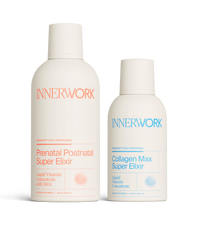Choline, a lesser-known nutrient often associated with B-vitamins, proves vital for both maternal and infant health, particularly during breastfeeding when demand increases. It supports liver function, aids fat metabolism, and is essential for producing acetylcholine, a neurotransmitter crucial for memory and mood regulation. Eggs, liver, soybeans, and cruciferous vegetables offer rich sources of this nutrient.
Collagen, though not a traditional vitamin or mineral, emerges as a critical protein for postpartum healing. It supports skin elasticity, aids wound healing, and promotes joint recovery from pregnancy-related stress. Innerwork's Collagen Max Super Elixir, crafted with hydrolyzed marine and bovine collagen, provides a high-quality option for new mothers seeking comprehensive support without the drawbacks of artificial additives. Bone broth and fish with edible bones also offer natural sources of collagen.
Magnesium, often depleted during pregnancy and childbirth, plays a crucial role in postnatal recovery. This mineral helps regulate mood, reduces postpartum anxiety, supports muscle recovery, and enhances sleep quality. Dark leafy greens, nuts, seeds, and whole grains provide ample magnesium to replenish depleted stores.
Vitamin K2, though less renowned than its counterpart K1, directs calcium to bones and teeth, helping prevent postpartum bone loss, support cardiovascular health, and aid wound healing. Fermented foods like natto, certain cheeses, and grass-fed animal products serve as excellent sources of this vital nutrient.
Iodine maintains thyroid function, crucial for metabolism and energy levels, especially during breastfeeding when demand increases significantly. This nutrient also aids the baby's brain development through breast milk. Seaweed, fish, dairy products, and iodized salt offer rich sources of iodine.
Zinc accelerates healing of C-section or episiotomy wounds, supports immune health, and aids breast milk production. Oysters, beef, pumpkin seeds, and lentils provide ample zinc to support these critical functions.
Maximizing nutrient absorption proves equally important as consumption. Pairing iron-rich foods with vitamin C enhances iron uptake, while probiotic foods support gut health and overall nutrient absorption. Staying well-hydrated aids nutrient transportation throughout the body, and consuming smaller, more frequent meals helps maintain steady energy levels and nutrient intake.
While a balanced diet forms the foundation of postnatal nutrition, the demands of new motherhood can make meeting all nutritional needs through food alone challenging. High-quality supplements can bridge these nutritional gaps. Innerwork's Prenatal Super Bundle offers comprehensive blends of essential nutrients in easily absorbable forms, including methylated B vitamins, without artificial sweeteners or additives. These products support the multifaceted needs of new mothers during this critical time. However, consulting with a healthcare provider before starting any new supplement regimen, especially while breastfeeding, remains essential.
Postnatal nutrition transcends mere weight loss or milk production; it supports a mother's body during one of life's most demanding phases. By focusing on these essential and often-overlooked nutrients, new mothers can promote recovery, enhance energy levels, and lay the groundwork for long-term health. Innerwork's targeted supplements aim to help mothers nourish their bodies from the inside out, providing comprehensive support when it matters most. Through mindful nutrition and supplementation, new mothers can embrace their postpartum journey with vitality and resilience.
References:
- Wallace, T. C., & Fulgoni, V. L. (2017). Usual Choline Intakes Are Associated with Egg and Protein Food Consumption in the United States. Nutrients, 9(8), 839.
- Arsic, A., et al. (2019). Collagen: A review on its sources and potential cosmetic applications. Journal of Cosmetic Dermatology, 18(6), 1695-1706.
- Boyle, N. B., Lawton, C., & Dye, L. (2017). The Effects of Magnesium Supplementation on Subjective Anxiety and Stress—A Systematic Review. Nutrients, 9(5), 429.
- Maresz, K. (2015). Proper Calcium Use: Vitamin K2 as a Promoter of Bone and Cardiovascular Health. Integrative Medicine: A Clinician's Journal, 14(1), 34-39.
- Zimmermann, M. B. (2012). The effects of iodine deficiency in pregnancy and infancy. Paediatric and Perinatal Epidemiology, 26, 108-117.
- Roohani, N., Hurrell, R., Kelishadi, R., & Schulin, R. (2013). Zinc and its importance for human health: An integrative review. Journal of Research in Medical Sciences, 18(2), 144-157.
- Kominiarek, M. A., & Rajan, P. (2016). Nutrition Recommendations in Pregnancy and Lactation. Medical Clinics of North America, 100(6), 1199-1215.
- Danielewicz, H., Myszczyszyn, G., Dębińska, A., Myszkal, A., Boznański, A., & Hirnle, L. (2017). Diet in pregnancy—more than food. European Journal of Pediatrics, 176(12), 1573-1579.
- Oh, C., Keats, E. C., & Bhutta, Z. A. (2020). Vitamin and Mineral Supplementation During Pregnancy on Maternal, Birth, Child Health and Development Outcomes in Low- and Middle-Income Countries: A Systematic Review and Meta-Analysis. Nutrients, 12(2), 491.
- Mousa, A., Naqash, A., & Lim, S. (2019). Macronutrient and Micronutrient Intake during Pregnancy: An Overview of Recent Evidence. Nutrients, 11(2), 443.

